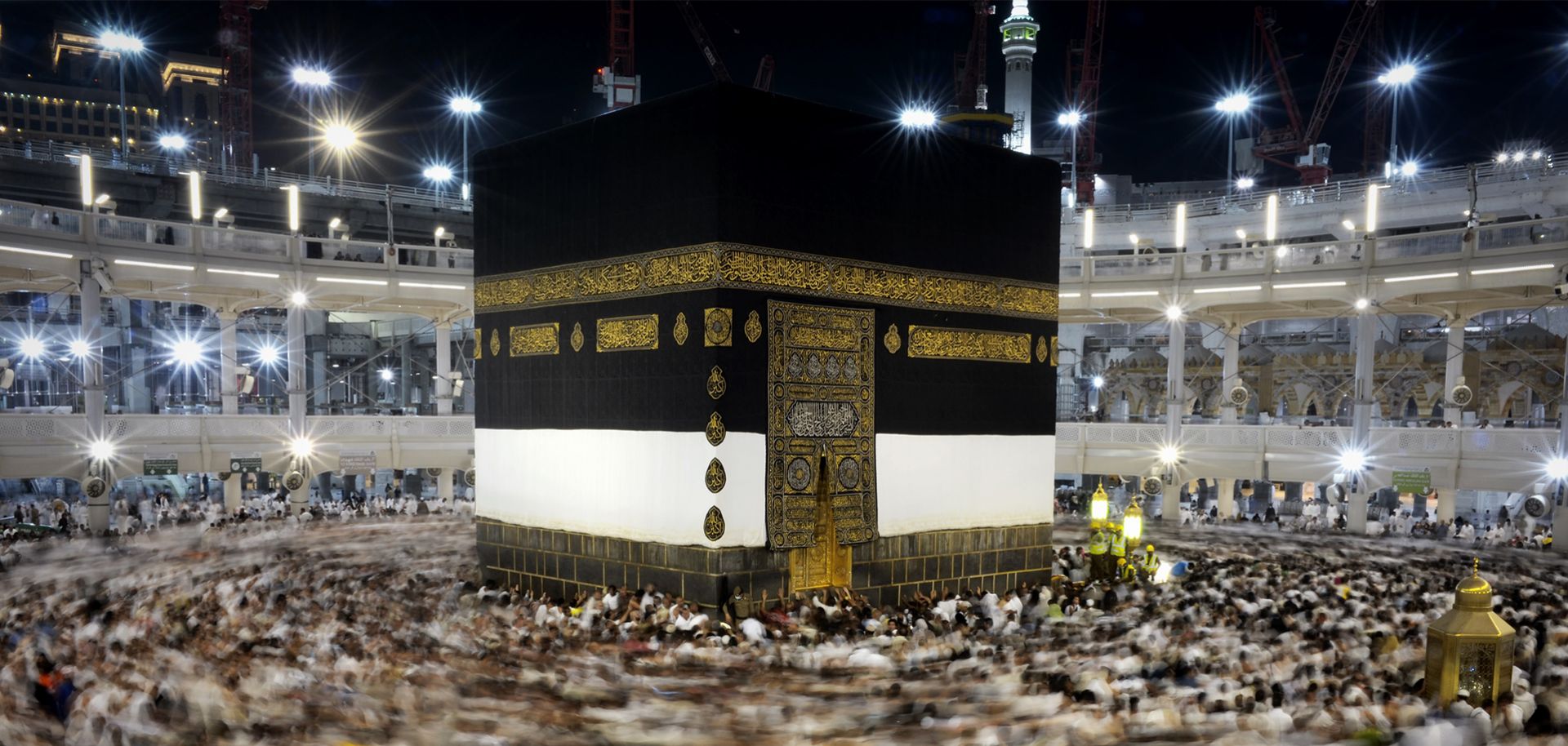What is the Holiest City for Muslims: Discover Mecca’s Sacred Significance

The holiest city for Muslims is Mecca. It is in Saudi Arabia.
Mecca holds immense significance for Muslims worldwide. It is the birthplace of the Prophet Muhammad. Muslims face Mecca during their prayers. The city is home to the Kaaba, the most sacred site in Islam. Every year, millions of Muslims travel to Mecca for Hajj, a pilgrimage required once in a lifetime.
This journey fosters unity and spiritual growth. Mecca’s rich history and religious importance make it central to Islamic faith. Understanding its role helps appreciate the depth of Muslim devotion. Keep reading to explore more about why Mecca is revered and its impact on the Islamic world.
Introduction To Mecca
Mecca is the holiest city for Muslims. It is a place of deep religious significance. Millions visit each year for the Hajj pilgrimage. This journey is a spiritual duty for Muslims. Let’s explore why Mecca is so important.
Historical Background
Mecca has a rich history. It dates back thousands of years. The city is linked to the Prophet Ibrahim (Abraham). He built the Kaaba with his son Ismail (Ishmael). This cube-shaped building is at the heart of Mecca.
The Prophet Muhammad was born in Mecca. He received the first revelation of the Quran there. This makes the city sacred. It is the center of Islamic faith. Pilgrims follow the steps of the Prophet. They perform rituals that he did during his lifetime.
Geographical Location
Mecca is located in Saudi Arabia. It is in the western part of the country. The city lies in a narrow valley. It is surrounded by hills. This unique location adds to its charm.
The coordinates are 21.4225° N, 39.8262° E. Mecca is about 70 kilometers from the Red Sea. The climate is hot and dry. Temperatures can reach up to 40°C in summer. Despite this, pilgrims come all year round.

Credit: en.wikipedia.org
Religious Importance
Mecca holds immense religious significance for Muslims worldwide. It is the birthplace of Islam. The city is home to the Kaaba, Islam’s most sacred site. Every year, millions of Muslims visit Mecca for Hajj. This pilgrimage is one of the Five Pillars of Islam. Mecca’s spiritual importance is unmatched in the Islamic faith. It embodies unity, devotion, and faith.
Central To Islamic Faith
Mecca is central to the Islamic faith. Muslims pray facing Mecca five times daily. This practice is called Qibla. The Kaaba, in Mecca, is the focal point of these prayers. The city symbolizes the unity of Muslims worldwide. This shared direction strengthens their bond. Mecca is also the site of Hajj, a mandatory pilgrimage. Completing Hajj is a significant religious duty for Muslims. It represents humility, devotion, and unity.
Connection To Prophet Muhammad
Mecca is deeply connected to Prophet Muhammad. He was born in Mecca in 570 CE. He received his first revelation in a cave near Mecca. This event marked the beginning of Islam. Prophet Muhammad preached Islam in Mecca for years. Many significant events in his life occurred there. The city is a testament to his legacy. His teachings and life in Mecca continue to inspire Muslims.
The Kaaba
The Kaaba is the most sacred site in Islam. Located in Mecca, Saudi Arabia, it is the focal point of the Islamic faith. Every Muslim, regardless of location, faces the Kaaba during prayers. It is a symbol of unity and faith for Muslims worldwide.
Description And Structure
The Kaaba is a cube-shaped building. It stands approximately 43 feet high. The structure is made of granite and covered by a black silk cloth called the Kiswah. The Kiswah is embroidered with gold Quranic verses. The door of the Kaaba is made from solid gold. Inside, the Kaaba is empty except for three wooden pillars.
The floor of the Kaaba is made of marble and limestone. A small, semi-circular wall known as the Hatim is adjacent to the Kaaba. It marks the area that was once part of the original structure. The Kaaba also features a special black stone, known as the Black Stone, set in its eastern corner.
Symbolic Meaning
The Kaaba holds great symbolic meaning in Islam. It is considered the “House of Allah.” Muslims believe it was originally built by Prophet Abraham and his son, Ishmael. The Kaaba represents the unity of Muslims under one God. During the Hajj pilgrimage, millions of Muslims circle the Kaaba in a ritual known as Tawaf. This act signifies the unity of believers in the worship of the One God.
The Black Stone is another important symbol. Muslims believe it was given to Abraham by the angel Gabriel. Touching or kissing the Black Stone is a significant act of worship. It is believed to absolve sins. The Kaaba is not only a physical structure but also a spiritual anchor for Muslims worldwide.

Credit: www.nwaonline.com
The Hajj Pilgrimage
The Hajj Pilgrimage is one of the most significant religious duties for Muslims. Every year, millions of Muslims from around the world travel to Mecca, the holiest city in Islam. They come to perform a series of rituals that form the Hajj.
Rituals And Practices
During the Hajj, pilgrims engage in various rituals that have deep spiritual meaning. Here are some key rituals:
- Tawaf: Pilgrims walk seven times around the Kaaba, the cube-shaped building in the center of the mosque.
- Sa’i: This involves walking seven times between the hills of Safa and Marwah.
- Standing at Arafat: Pilgrims spend an afternoon in prayer and reflection at the plain of Arafat.
- Stoning the Devil: They throw stones at three pillars in Mina, symbolizing the rejection of evil.
- Animal Sacrifice: An animal is sacrificed to commemorate Prophet Ibrahim’s willingness to sacrifice his son.
Significance For Muslims
The Hajj pilgrimage holds immense significance for Muslims. It is one of the Five Pillars of Islam, making it a fundamental aspect of their faith.
| Aspect | Description |
|---|---|
| Spiritual Renewal | Hajj allows Muslims to renew their faith and seek forgiveness. |
| Unity | It brings together Muslims from different cultures, emphasizing equality and brotherhood. |
| Obedience to God | Performing Hajj shows obedience to God’s commands. |
For many, it is a once-in-a-lifetime journey that strengthens their connection to Allah. The experience of Hajj leaves a lasting impact on their lives.
Other Sacred Sites In Mecca
Mecca, the holiest city for Muslims, is not only famous for the Kaaba. It also hosts several other sacred sites that hold immense religious significance. These sites draw millions of pilgrims every year.
Masjid Al-haram
Masjid al-Haram, also known as the Grand Mosque, is the largest mosque in the world. It surrounds the Kaaba, which is the most sacred site in Islam. The mosque has a capacity of over two million worshippers. It is a focal point for the Hajj pilgrimage.
The mosque features several important areas:
- The Kaaba – The black cube that Muslims face during prayers.
- Black Stone – An ancient stone set into the Kaaba’s eastern corner.
- Safa and Marwah – Two small hills linked to the story of Hagar and Ishmael.
Masjid al-Haram is a marvel of Islamic architecture and devotion.
Zamzam Well
The Zamzam Well is another sacred site within Mecca. It is located within the Masjid al-Haram complex. According to Islamic tradition, the well miraculously provided water to Hagar and her son Ishmael. This happened when they were left in the desert by Prophet Abraham.
Key points about the Zamzam Well:
- It is believed to have healing properties.
- Many pilgrims drink from the well during Hajj and Umrah.
- Water from the well is often taken back home as a blessed souvenir.
The Zamzam Well continues to be a symbol of divine providence and mercy.
Cultural Impact
Mecca is the holiest city for Muslims. It has a profound cultural impact on Islamic societies. This impact is visible in art, identity, and everyday life. Mecca’s rich history and spiritual significance shape many cultural elements for Muslims worldwide.
Influence On Islamic Art
Mecca inspires Islamic art in many ways. Artists use geometric patterns and calligraphy to reflect spiritual themes. These designs often include verses from the Quran. Art pieces show the deep connection between faith and creativity. Mosques around the world feature art influenced by Mecca.
Even in textiles, Mecca’s influence is clear. Many Muslim countries have unique patterns. Yet, the common thread is the use of sacred designs. This links back to Mecca’s profound cultural influence.
Role In Muslim Identity
Mecca plays a crucial role in shaping Muslim identity. Every Muslim aims to visit Mecca at least once. This pilgrimage, known as Hajj, is a key part of their faith. It strengthens their connection to the global Muslim community.
The city is a symbol of unity and devotion. It reminds Muslims of their shared beliefs and values. This shared experience fosters a sense of belonging. It helps Muslims feel connected to their heritage and each other.
Modern-day Mecca
Mecca, the holiest city for Muslims, is a blend of tradition and modernity. It is the birthplace of Prophet Muhammad. Every year, millions of Muslims visit Mecca for the Hajj pilgrimage. The city has seen significant changes over the years. Let’s explore what modern-day Mecca looks like today.
Infrastructure And Development
Modern-day Mecca boasts impressive infrastructure. The city has expanded to accommodate millions of pilgrims. The Grand Mosque, Al-Masjid al-Haram, is at the heart of Mecca. It can hold up to two million worshippers at a time. The mosque has undergone numerous expansions. The latest expansion added new prayer halls and facilities.
Mecca also has a modern transportation network. The Mecca Metro is a light rail system. It helps pilgrims move around the city easily. The city also has a high-speed train, the Haramain Express. This train connects Mecca with Medina and Jeddah. It reduces travel time for pilgrims. The Jeddah airport is the main entry point for international pilgrims.
| Feature | Details |
|---|---|
| Grand Mosque Capacity | Up to 2 million worshippers |
| Mecca Metro | Light rail system |
| Haramain Express | High-speed train |
Challenges And Issues
Despite the advancements, Mecca faces several challenges. One major issue is overcrowding. During Hajj, the city population swells dramatically. This can lead to logistical problems. Ensuring the safety of millions is a daunting task. Stampedes have occurred in the past, causing loss of life.
Another challenge is maintaining the balance between modernization and tradition. Many historic sites have been demolished for new developments. This has caused concern among some Muslims. They worry about losing the city’s historical essence. Preserving the spiritual atmosphere while upgrading facilities is a delicate balance.
Environmental concerns are also present. The massive influx of pilgrims results in significant waste. Proper waste management is crucial to keep the city clean. Water scarcity is another issue. The arid climate of Mecca makes water a precious resource. Efficient water management systems are essential to meet the needs of residents and pilgrims.
- Overcrowding during Hajj
- Balancing modernization with tradition
- Environmental concerns

Credit: worldview.stratfor.com
Frequently Asked Questions
What Is The Holiest City For Muslims?
The holiest city for Muslims is Mecca. It is located in Saudi Arabia. Mecca is the birthplace of Prophet Muhammad.
Why Is Mecca Important To Muslims?
Mecca is important to Muslims because it is the birthplace of Prophet Muhammad. It is also home to the Kaaba, the most sacred site in Islam.
What Is The Kaaba?
The Kaaba is a cube-shaped building in Mecca. It is considered the most sacred site in Islam. Muslims around the world face the Kaaba during prayers.
Can Non-muslims Visit Mecca?
No, non-Muslims are not allowed to visit Mecca. The city is exclusively for Muslims to perform religious rituals and pilgrimage.
Conclusion
Mecca stands as the holiest city for Muslims worldwide. This sacred city holds immense religious importance. Every year, millions of Muslims visit Mecca for pilgrimage. The city is home to the Kaaba, a revered site. Mecca’s significance in Islam cannot be overstated.
It is a central part of Muslim faith and tradition. Understanding Mecca’s role helps appreciate Islamic culture deeply. This knowledge fosters respect and unity among diverse communities. Visiting or learning about Mecca enriches one’s perspective on Islam. The city’s spiritual essence continues to inspire Muslims globally.





